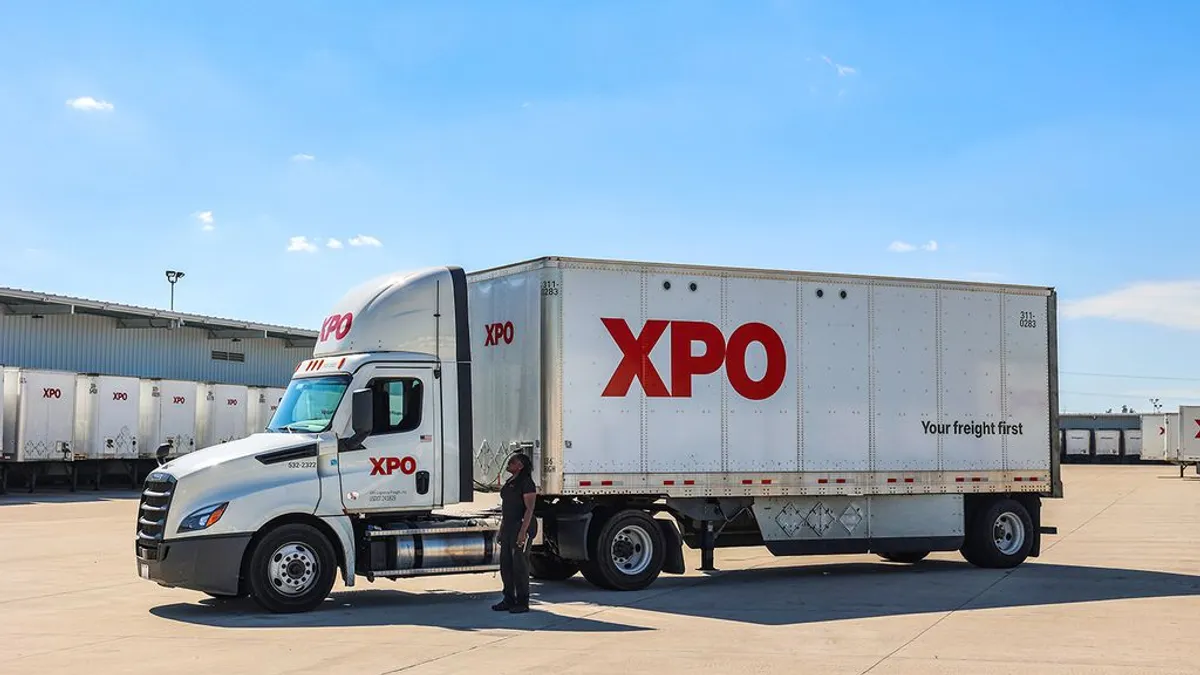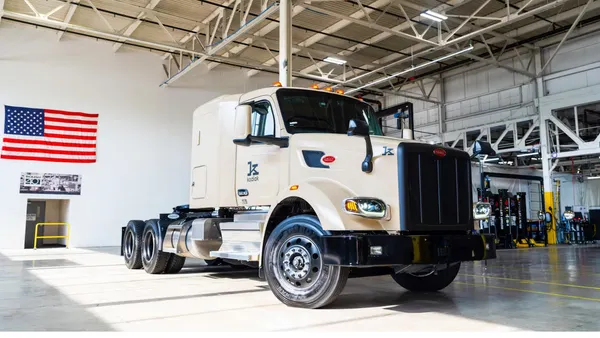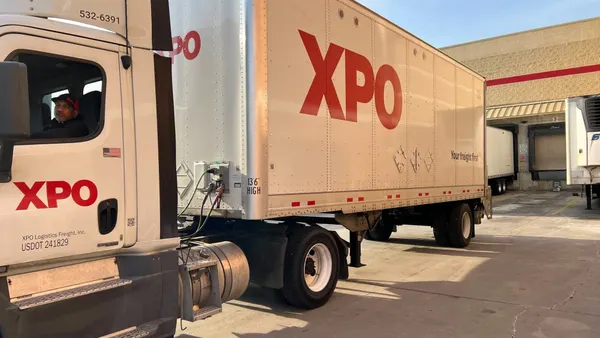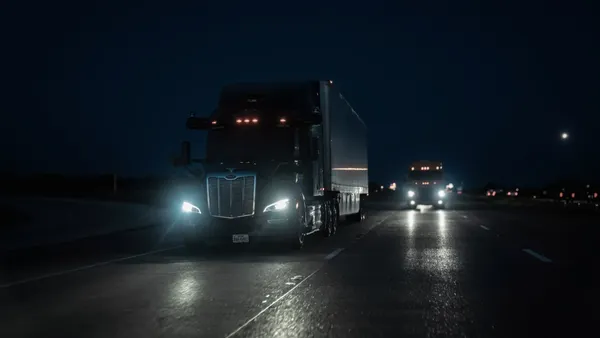Dive Brief:
- The California Department of Motor Vehicles (DMV) issued Nuro a permit to operate two self-driving delivery vehicles on select streets in the Bay Area without a safety driver present. Nuro becomes the second company to get such a permit after Waymo received its permit in November 2018.
- The two fully driverless cars will have a maximum speed of 25 miles per hour and will only be allowed to operate in fair weather conditions on streets with speed limits of 35 miles per hour.
- The company's R2 fleet will start service with free deliveries to some customers in Mountain View, CA, Nuro's Chief Legal and Policy Officer David Estrada wrote in a Medium post. And due to the coronavirus, he said the approval also comes at a time when the public needs "contactless delivery services."
Dive Insight:
A successful run for Nuro could have big implications for final mile delivery, a large aspect of trucking. Final mile delivery of freight is the least efficient part of transport, but autonomous vehicles (AVs) could help speed goods to customers in the final mile segment of supply chain, keeping drivers on the road for longer trips.
Nuro had to meet a number of requirements to receive a permit, including verifying the vehicles can operate without a driver, meeting federal vehicle standards or having an exemption from the National Highway Traffic Safety Administration (NHTSA). Nuro received a temporary exemption from NHTSA in February. The company also has had a permit to test AVs with a safety driver present since 2017.
The new permit for Nuro comes mere months after the California DMV approved revised regulations to allow the commercial use of light-duty autonomous delivery vehicles on public roads without a safety driver. That rule only applies to vehicles weighing less than 10,001 pounds, like passenger cars, mid-size pickup trucks and cargo vans. Nuro's R2 also falls within that weight limit.
In February, the Virginia state legislature approved a bill that would allow Amazon to operate autonomous delivery robots on roads and sidewalks. Washington, DC has also moved to expand their use. Meanwhile, Postmates announced last August it would deploy its delivery robots in San Francisco.
AVs remain controversial due to concerns over safety.
Nuro said this is just the start of the process. In his Medium post, Estrada said the company is planning "various remote community engagement activities with Mountain View law enforcement and first responders" in a bid to educate the leaders and the public about how to interact with the delivery vehicles. The company hopes to eventually roll the vehicles out statewide if everything goes well, Estrada added.













